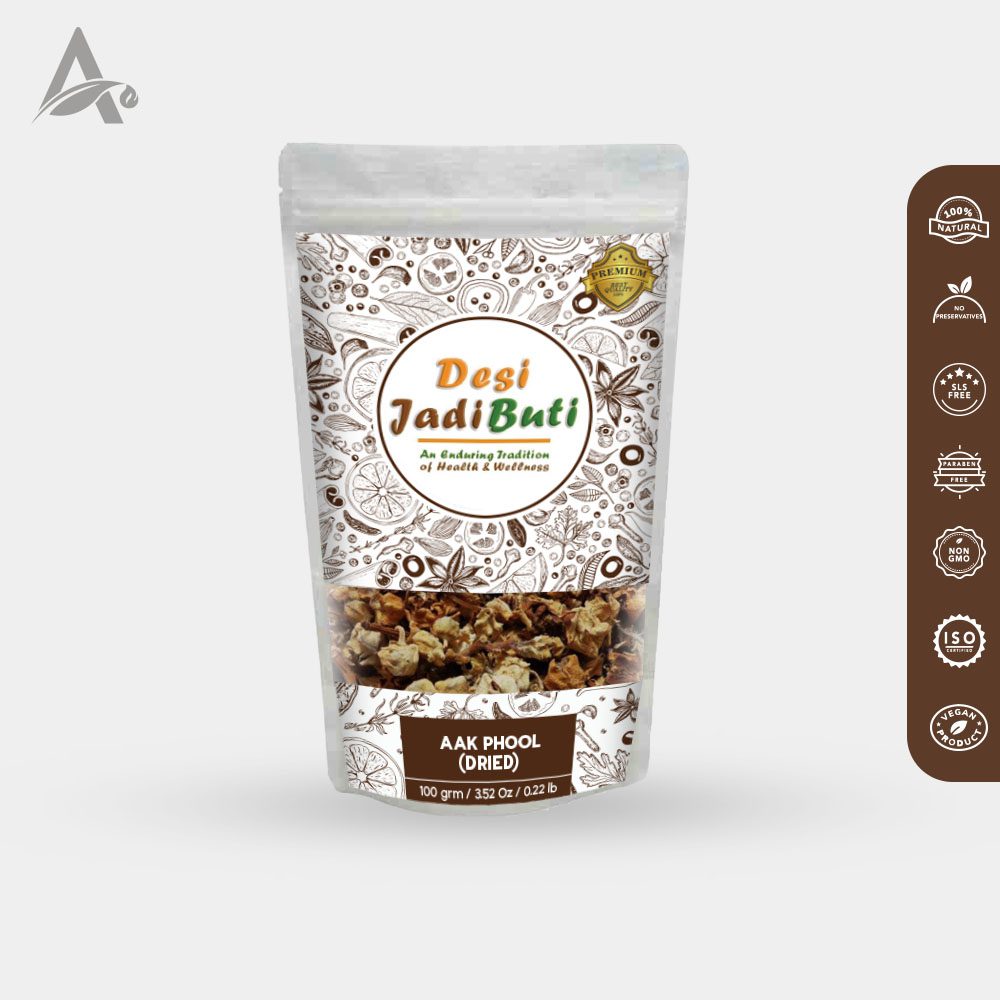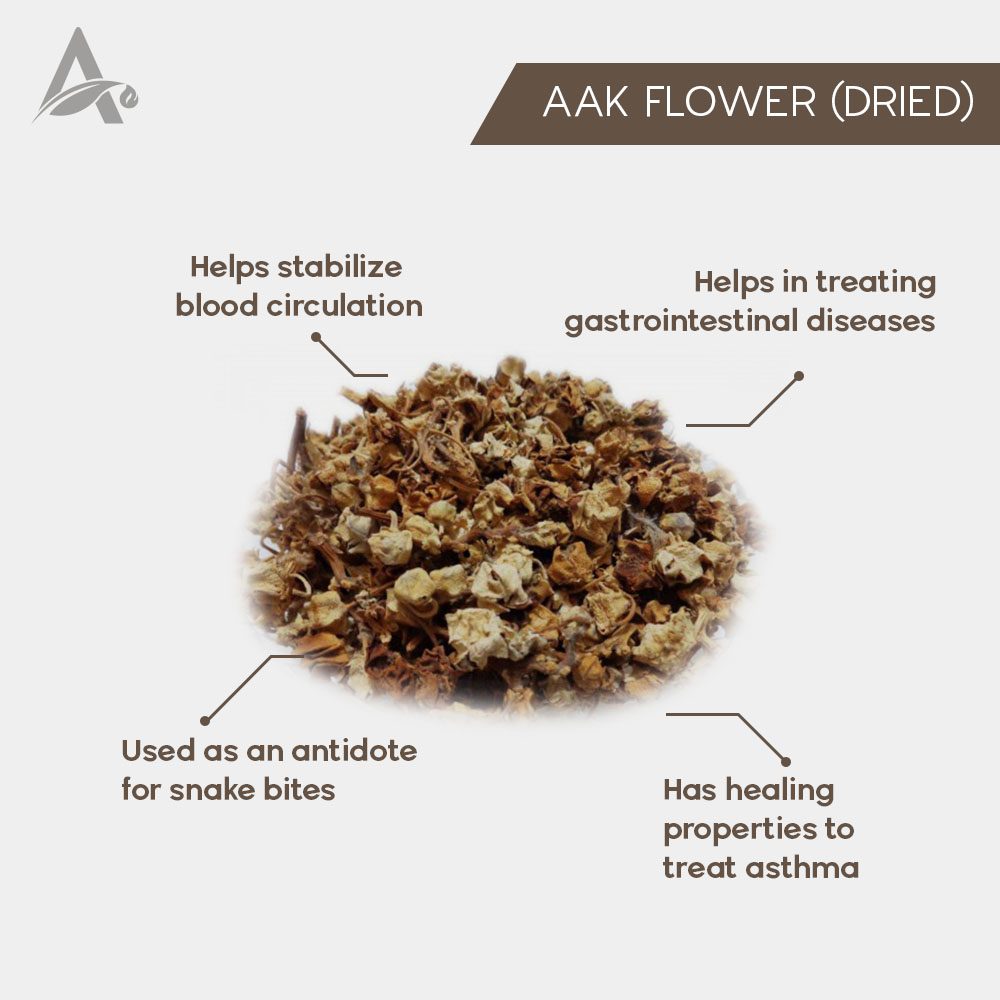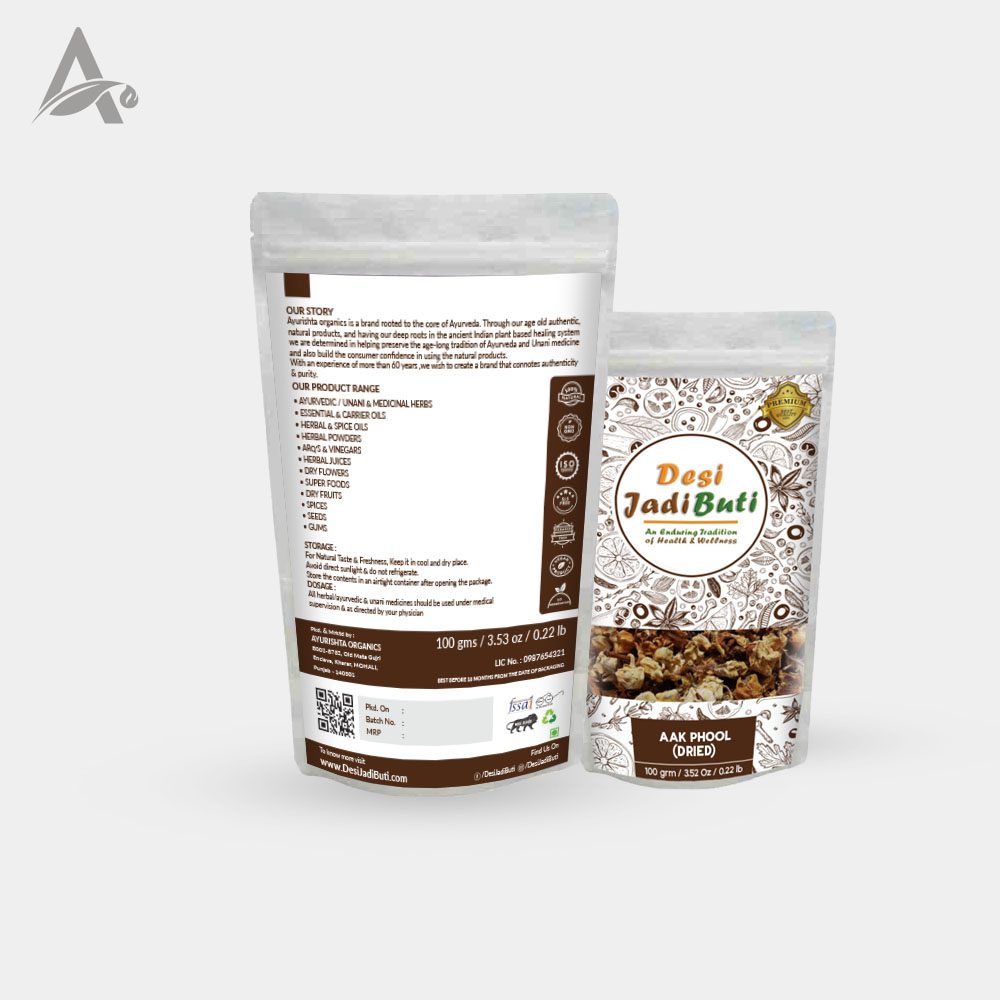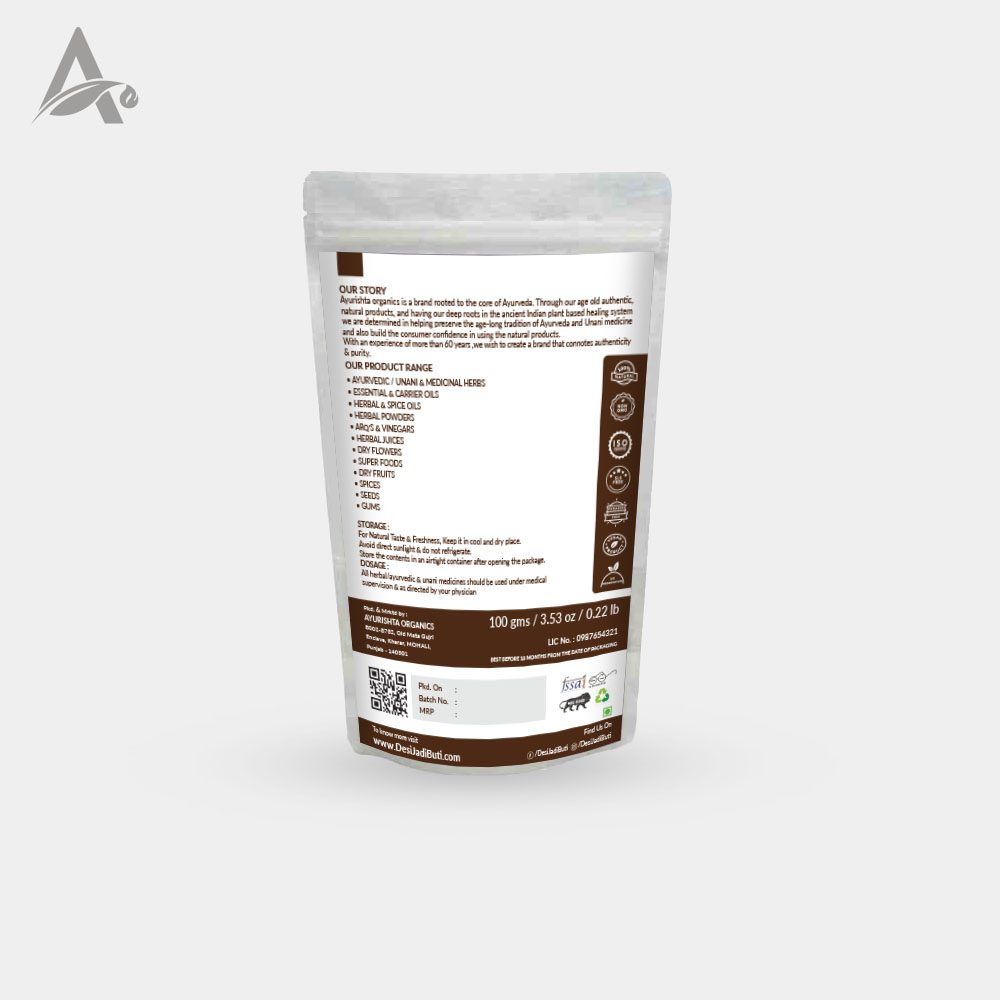Aak Phool Desi Jadi Buti is a species of flowering plant in the family Apocynaceae that is native to North Africa, tropical Africa, Western Asia, South Asia, and Indochina. The green fruits contain a toxic milky sap that is extremely bitter and turns into a gluey coating which is resistant to soap.
Aak is a spreading shrub or medium-sized tree reaching 2.5 to 6 m in height. It has a deep taproot, 3-4 m deep, and a secondary root system with woody lateral roots that may rapidly regenerate adventitious shoots when the plant is injured. The stems are crooked and covered with a fissured corky bark.
The grey-green leaves are 15-30 cm long and 2.5-10 cm broad and have a succulent and waxy appearance, hence the name procera, which means wax in Latin. Sukhe Aak Phool are pentamerous, small, cream or greenish white at the base and purple violet at the extremity of the lobes. The fruit is a fleshy and inflated, up to 10 cm or more in diameter.
AAK PHOOL – AAKH PHOOL DRIED – MADAR – CALOTROPIS PROCERA Benefits:
Helps us in preventing and curing the following:
- The root bark is an emetic.
- An infusion of bark powder is used in the treatment and cure of leprosy and elephantiasis.
- The extremely poisonous roots are used in the treatment of snakebites.
- The leaves are used for the treatment of asthma.
- The milky sap is used as a rubefacient and is also strongly purgative and caustic.
Other Names:
Arka, Alarka, Mandara, Ravi, Bhanu, Tapana, Surya Patra, Milkweed, Mudar, Madar Tree, Swallow-wort, Calotropis gigantea, Akand, Akone, Aakado, Retoakah,Akado, Akda, Myhara, Ekk, Ekkdagid, Ekkegid, Arkagid, Ashur, Ushae, Zahar Nak, Kharaq, Zahook.
Safety Information:
- For Natural Taste & Freshness, Keep it in cool and dry place.
- Avoid direct Sunlight & Do not Refrigerate.
- Store the contents in an Airtight Container after opening the package.
- All herbal medicine should be used under Medical Supervision only.



































































Reviews
There are no reviews yet.